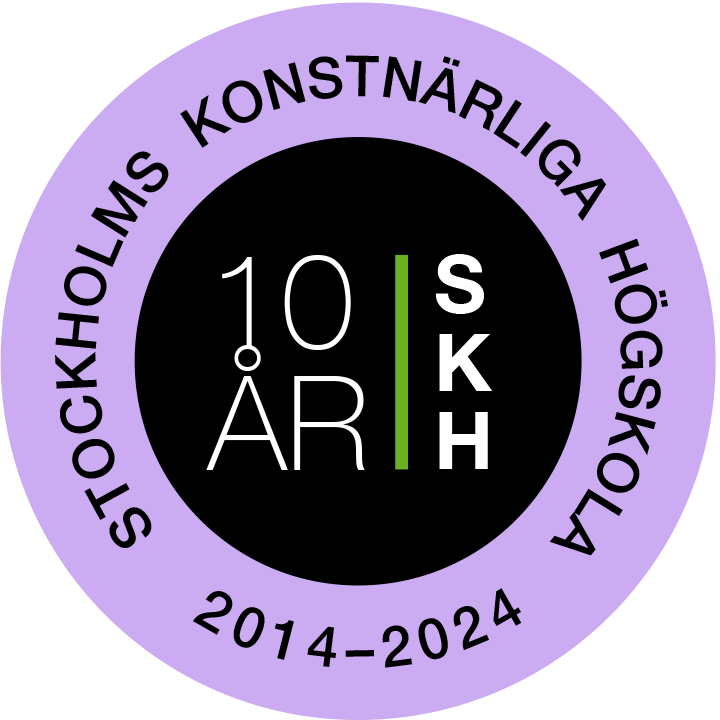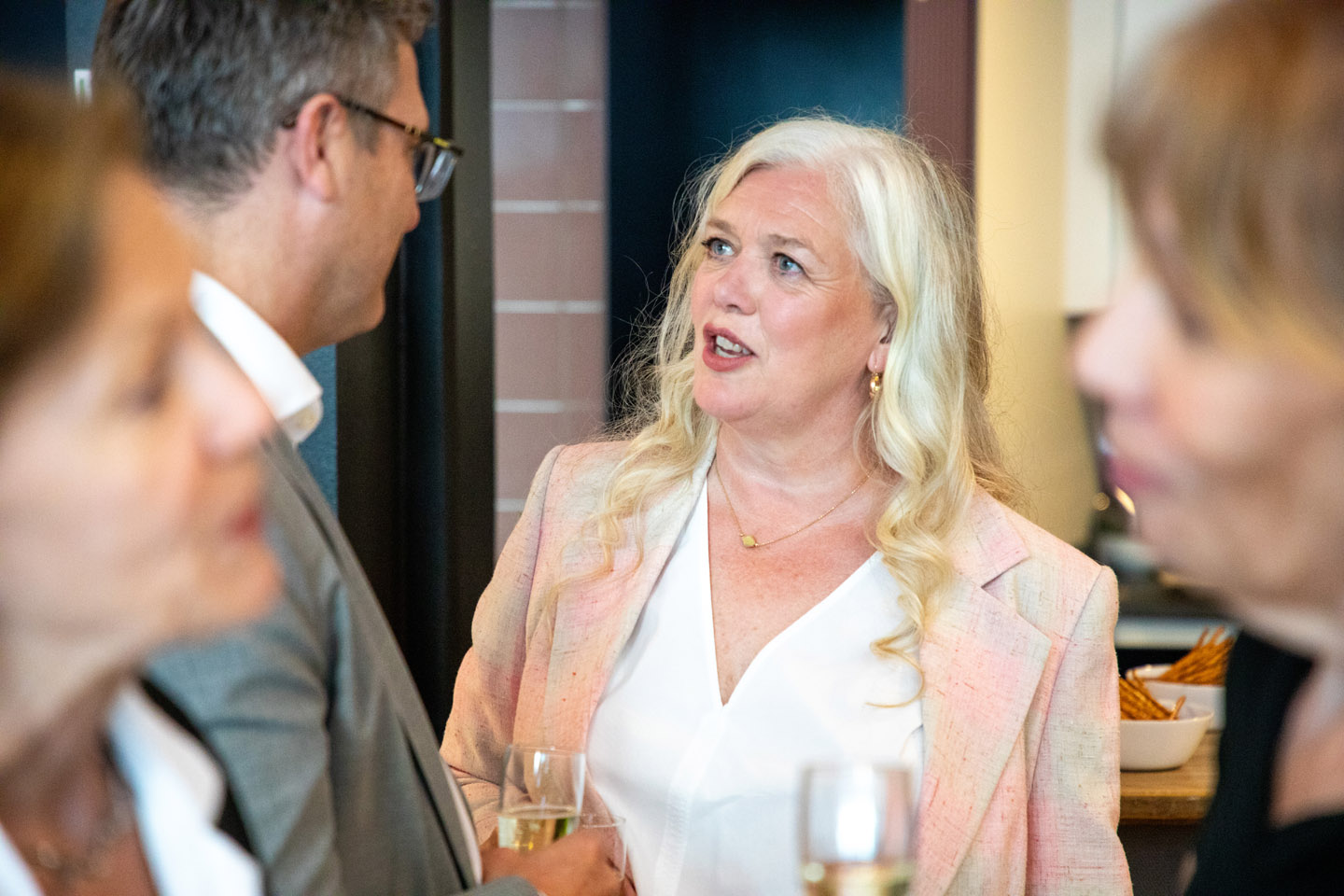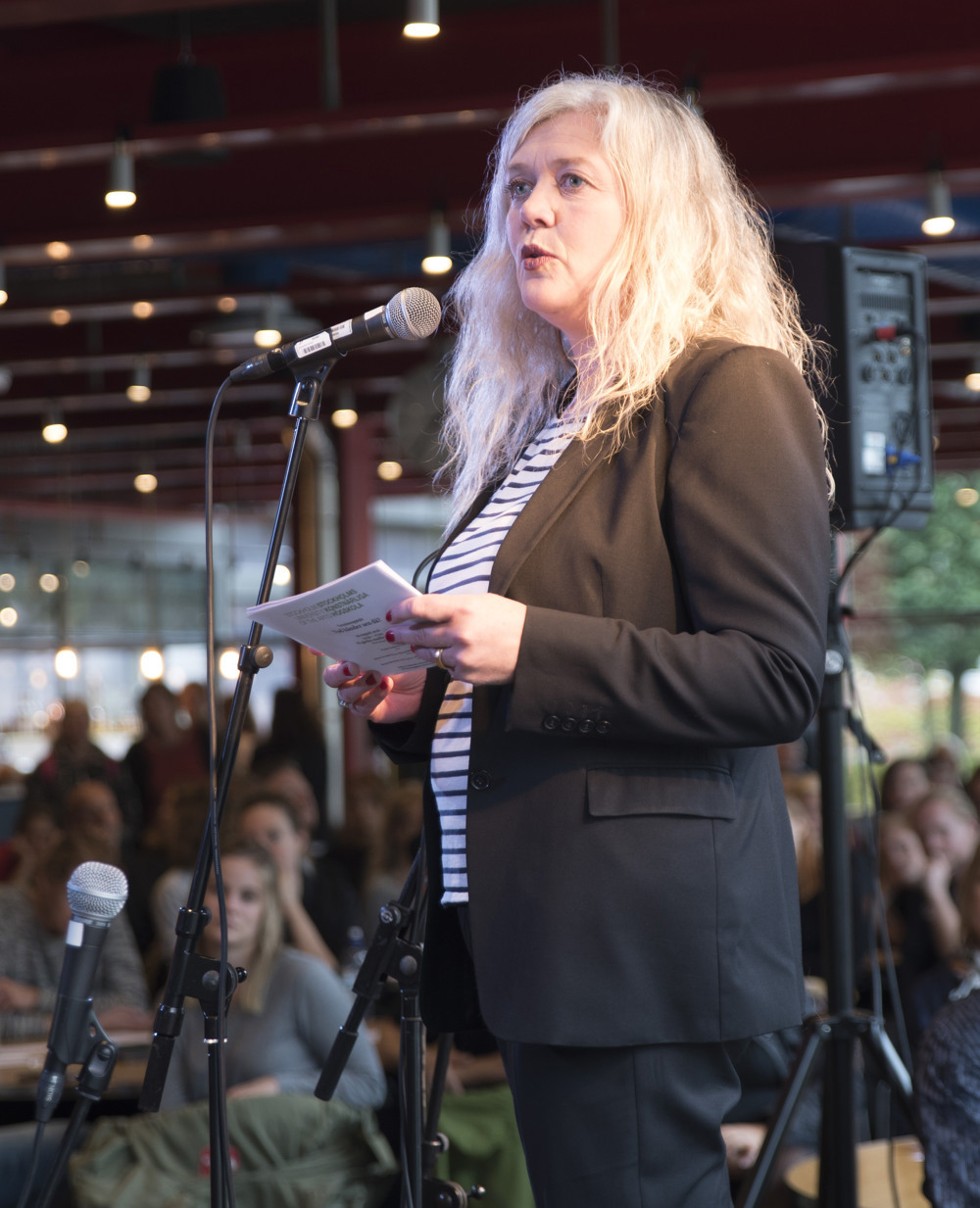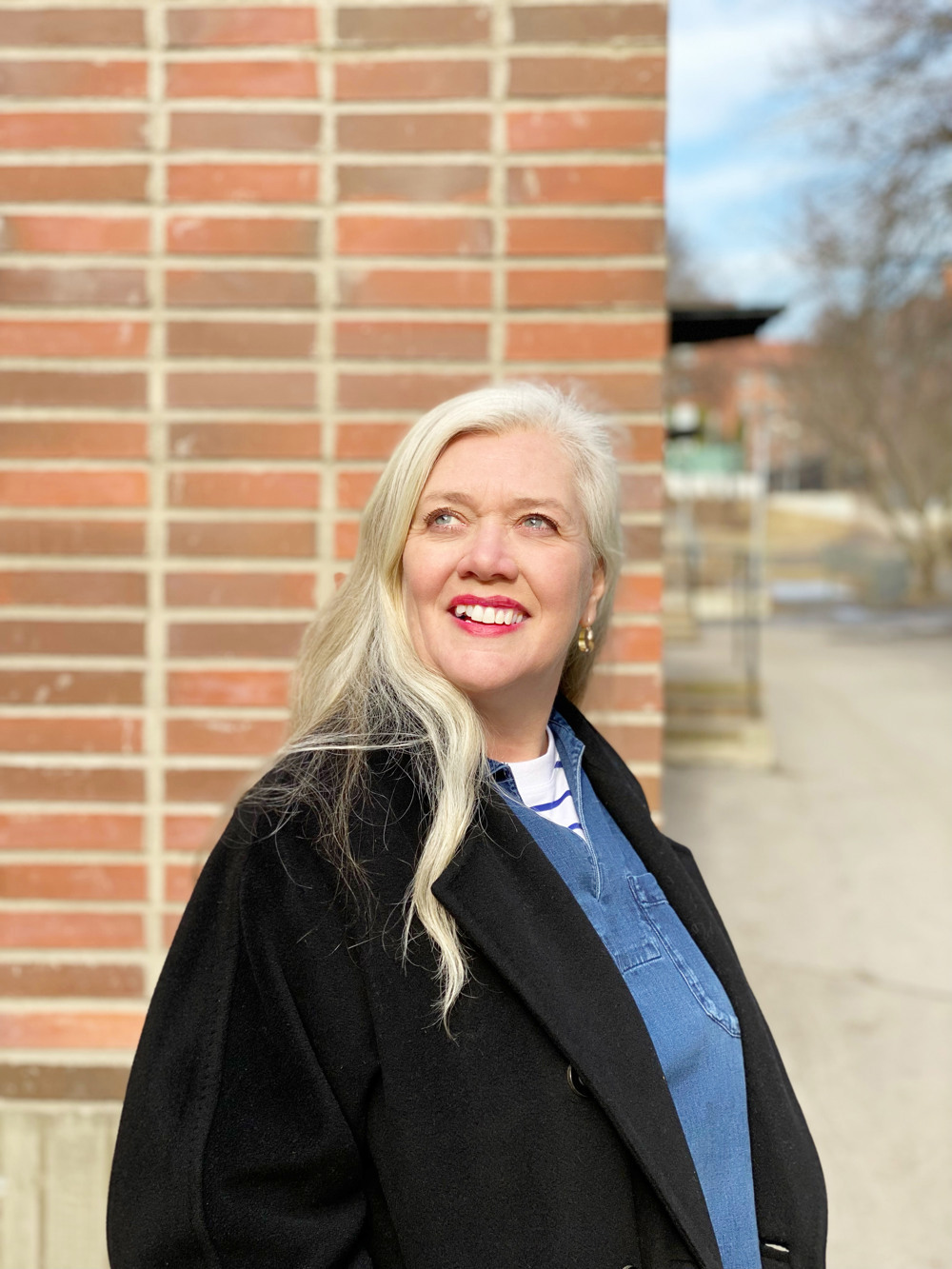Interview: Paula Crabtree leaving as Vice-chancellor
Three different schools with three very different positions in their development and challenges, as well as three very different historical priorities and ways of working. That was the situation Paula Crabtree faced when starting her job as Vice-Chancellor at SKH.
She had spent five years as Rector – equivalent to a Vice-Chancellor – at Bergen Academy of Art and Design, and had significant experience that seemed to make her ideal for the role, not least prepared an entire complex organisation for moving into a dedicated, shared building. The choice of someone from outside, with none of the schools taking leadership over the others, also seemed natural.
And yet, when she was approached by recruiters for the role, it came as a surprise.
“I had no intention of applying at first,” Paula says. “I was quite happy where I was! I just remember thinking ‘this must be one of the most interesting jobs in the Nordic area at the moment’ but wasn’t going to take it further.”
When another qualified candidate dropped out late in the process, she suddenly found herself the only remaining choice, and launched herself into the role. From the beginning, she had strong, definite ideas for how to bring the university together. With the organisational structures still geared towards the old institutions, it was anything but a smooth process at first.
“Once I got there, I couldn’t get away from the fact that it was a very interesting but clearly also very challenging job,” says Paula. “The three schools had three pro-vice-chancellors, who were essentially leaders of their own schools. We’re a small school, but we were essentially built up like the biggest universities around, with many hierarchical layers. Now that layer is gone, since 2018, but we have to make sure we don’t end up there again in the future.”
The right pace of reform
The government had clearly laid out the idea that the three schools were to be combined into one, and had given special funds to increase the university’s research focus and have it gain the right to award doctorates. Paula Crabtree brought with her experiences of artistic research and organisational transformation from Norway and many years of work as Vice President of ELIA (European League of Institutes of the Arts), the organisation of European art schools.
“The first priority was the application for the right to have doctoral education,” Paula says. “The most important thing we had to do was to make sure that any degrees were really coming out of practice, that it wasn’t an academisation of our top-quality practical education. This was quite a radical approach, even compared to the work we’d done in Norway!”
Paula sometimes faced questioning attitudes, especially initially. Helping people understand where she wanted the school to be heading, allaying their fears – and yet standing firm in her desire to enact change and move forward with the important reforms – became one of the central challenges in her way of leadership. One important aspect of her way of working was to take her time to slow down and make sure any reforms were well discussed and anchored before taking further steps.
“I sometimes flippantly liken the approach to the Teletubbies,” Paula says. “They have screens on their bodies and show the same thing again and again. When you know you have to be heading somewhere, even if I have it exactly planned out in my head and moving quickly forward, it doesn’t mean it will be visible to someone else. You have to find a balance between driving an important question, and making sure that people are caught up to the process, move at a pace but not too fast.”
Stability and legacy
The multiple processes going on at once, shaping the new university, initiating a move to a shared building, reorganising research and education, was a lot to take on at once for a small university. Coming in as a new person meant big reforms, but also keeping everything running.
“What’s special is that everything we’ve done, all the changes, all the moves, we’ve done that on top of all the things a school has to do generally,” Paula says. “We had to keep working as a university, we couldn’t stop learning and teaching to implement new methods or ideas.”
“I’m incredibly proud of SKH. We’ve become one of the main art schools in Europe that people look to when wanting inspiration for how artistic research can be done.”
Paula mentions, as a point of pride, the research and doctoral education, but also a much more collegial, shared atmosphere, working towards a common goal, and an unprecedented togetherness. Paula hopes that this will only continue to become more notable in the future, when SKH moves into a shared building and people in different subject areas can see and work with each other on a daily basis.
“I think we’re at the most stable time the university has ever been, despite the situation in the world right now, Paula says. “Now that so much is in place with the new building and the organisational development, we can start looking at what we’re really able to do. It’s a good time for me to go out, I think, but also a great time for my successor to come in and start from a place of stability.”
On a personal level, the time in Sweden has definitely left its mark. Her children, she says, are now based here, have studied and are working here, and her family life is centred around the country she’d never lived in before coming to SKH. While she will continue her work on the boards of the Swedish Arts Council and the University of Trondheim, and several research advisory boards, there is also a sense that she wants to take a step back and see what to do with a less hectic, less busy life.
“I’ve spent 15 years being a vice-chancellor non-stop, and before that eight years of being a dean,” Paula says. “Last week I was in Athens, and it’s the first time in all that time I’ve spent a week where I didn’t think too much about the university. I only had a couple of meetings!”
“I have a studio in France, and I am considering seeing how or if I can go back to painting. I will have to see how much I can tolerate just being in my own space… But I’m still going to follow SKH. I’ve dedicated so much to this. It’s not something I can just cut out.”
SKH is turning ten

SKH is celebrating ten years as a university college in 2024, and we'll be filling the year with retrospection, foresight, articles and events that connect to the decennial in various ways.

Paula Crabtree was given a send-off on 30 May in connection with SKH's 10-year anniversary. Photo: Johan Palme/SKH
-(1).jpg)
Paula gives a speech at SKH's start of term 2016, with the Culture Minister present. Photo: Bengt Söderström/SKH
.jpg)
Paula has a background as an artist herself before entering the university world. “Art schools have to be led by artists,” she says. “I felt passionate about that, and I realised I had to do something about it myself.” Photo: Heidi Möller/SKH